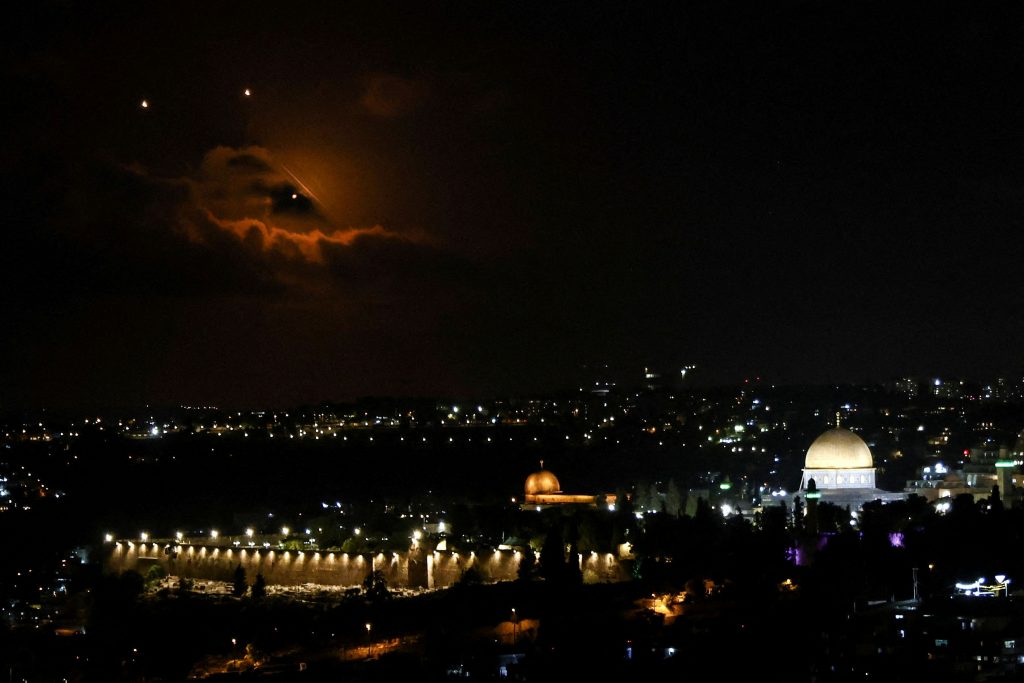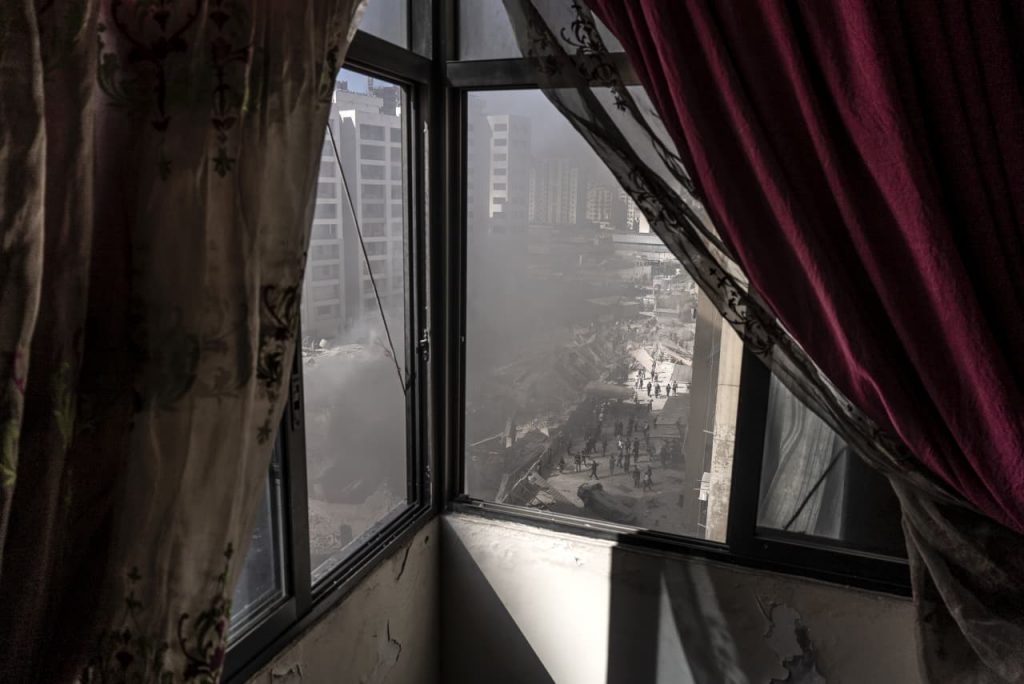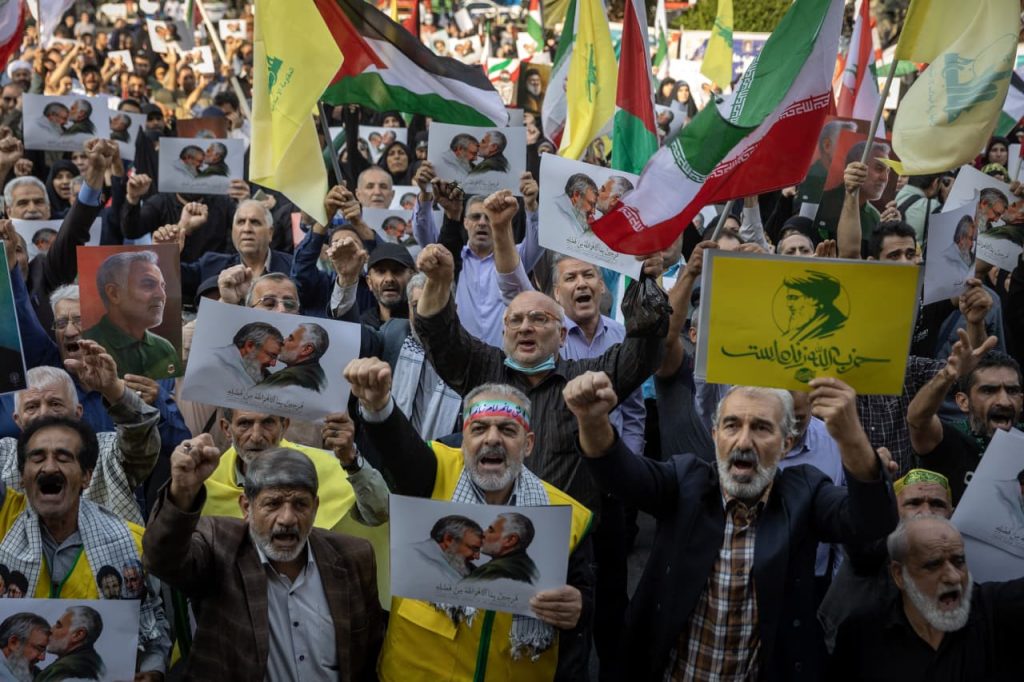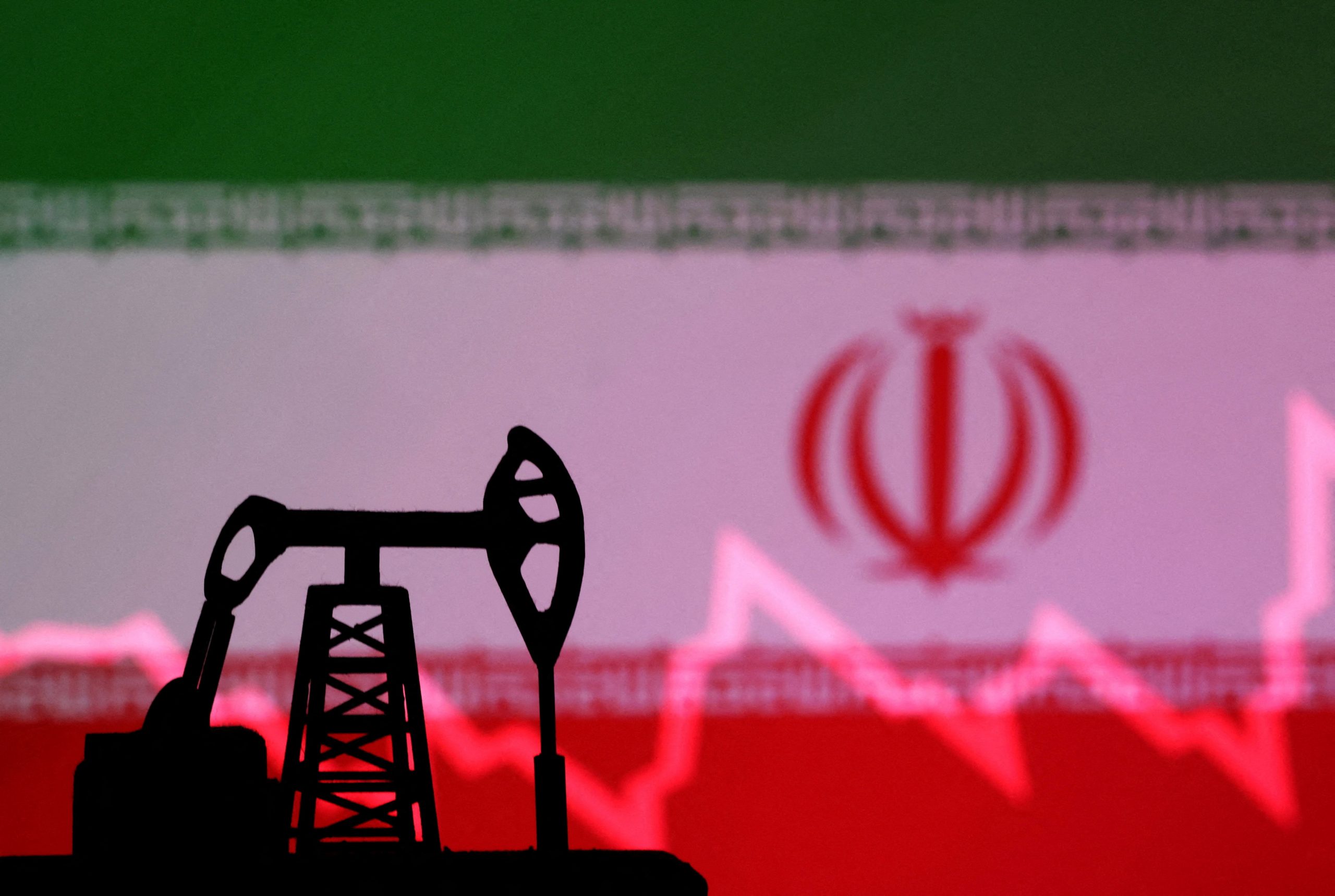DUBAI—Tehran is threatening in secret diplomatic backchannels to target the oil-rich Arab Gulf states and other American allies in the Middle East if their territories or airspace are used for an attack on Iran , said Arab officials.
Israel has threatened Tehran with a severe reprisal after Iran fired about 180 ballistic missiles at Israel earlier this month, with some Israeli officials and commentators pushing for damaging strikes on Tehran’s nuclear facilities or oil infrastructure. In that event, Iran has warned it would respond with devastating hits on Israel’s civilian infrastructure, and would retaliate against any Arab state that facilitated the attack, the officials said.
The Arab officials said the countries that Iran has threatened include Jordan, the United Arab Emirates, Saudi Arabia and Qatar, all of which host U.S. troops. These states have told the Biden administration that they don’t want their military infrastructure or airspace to be used by the U.S. or Israel for any offensive operations against Iran, the officials said.
While the Iranian threats are vague, they have raised concerns in energy-rich Persian Gulf states that their oil facilities—long viewed as protected by an American security umbrella—could be hit, the Arab officials said. U.S. military installations and forces in the region could also be at risk in a region with one of the highest concentrations of American troops in the world, they added.
The escalating conflict in the Middle East is straining the alignment of Arab states and Israel, which all oppose Iran’s military posture in the region. The U.S. is the backbone of this bloc, and harbors hopes that in the future it could be a sort of Middle East NATO, aligned around countering Iran rather than Russia. Arab states including Jordan helped shoot down Iranian projectiles headed for Israel in April, but supporting a direct Israeli strike on Iran may be a step too far.
U.S. defense officials acknowledged that some regional partners have told the Pentagon that they don’t want Israeli warplanes flying over their territories or U.S. troops launching offensive operations from inside or over their airspace. The Arab countries have said the U.S. forces are allowed to conduct self-defense operations, the officials said.
The Arab countries’ requests remain informal, a U.S. defense official said. Since the war between Israel and Hamas in Gaza began last year, Arab countries have repeatedly added and removed limits on American operations, defense officials said. But these countries were more assertive as the war expanded into clashes between Israel and Iran, including Israeli attacks in Lebanon, the officials said.

The Dome of the Rock on the Al-Aqsa compound, also known to Jews as the Temple Mount is seen as projectiles fly through the sky, after Iran fired a salvo of ballistic missiles at Israel, as seen from Jerusalem October 1, 2024. REUTERS/Jamal Awad

The Israeli military struck buildings in Beirut earlier this month. Photo: Manu Brabo for WSJ.
President Biden and Prime Minister Benjamin Netanyahu on Wednesday discussed Israel’s expected military retaliation against Iran in their first call since Aug. 21. U.S. officials said they don’t yet have either the timing of the strike or what Israel might target. Israel’s security cabinet had been set to convene, with members presented with options for a response to the Iranian attack, according to an Israeli official.
Israel likely has other routes for sending warplanes to attack Iran, including over Syria, where its air force has freedom of movement, and Iraq, where air defenses are no match for Israeli stealth technology.
Still, any restrictions on how the U.S. military moves throughout the region makes it potentially harder to secure or resupply its assets, such as aircraft carriers operating in the Red Sea.
U.S. Central Command, which is responsible for U.S. military operations in the Middle East, referred questions to its allies. The Iranian Foreign Ministry and Israeli prime minister’s office didn’t respond to requests for comment.
Earlier this month, Iran’s Mission to the United Nations publicly warned “any country render[ing] assistance” to an Israeli attack “shall likewise be deemed an accomplice and a legitimate target,” but did not provide any specifics.
The U.S. has supported Israel’s right to defend itself but is pressing to keep the response limited, as it works to stop the fighting from spilling across the region ever since the Hamas-led Oct. 7 attack left 1,200 people dead and set off a devastating war in the Gaza Strip.
In April, when Iran first targeted Israel in a direct attack, Israeli and U.S. forces intercepted most of the Iranian drones and missiles. But they could do so in part because Arab countries passed along intelligence about Tehran’s attack plans, opened their airspace to warplanes, shared radar-tracking information or, in some cases, supplied their own forces to help, officials had said at the time.

Iranian demonstrators shouted anti-Israel slogans this week as they held posters showing miltary leader Qassem Soleimani, who was killed by the U.S. in 2020, kissing the forehead of Hezbollah leader Hassan Nasrallah, who was killed by Israel last month. Photo: Maryam Rahmanian for WSJ.
With Iran warning that it would hit back if Israel attacks, Arab leaders are worried that the escalation would force the U.S. to step in to help Israel, its closest ally in the Middle East.
“My worry in this situation is the risk of miscalculation, or if something goes wrong,” said Yossi Mekelberg, a Middle East analyst at London-based think tank Chatham House. “It may push the other side to do things for which they don’t have a prepared and calculated plan.”
The Arab intermediaries are trying to calm tensions as they shuttle messages between Israel and Iran—a backchannel that has opened up since April, when Iran struck Israel with 300 projectiles. The stealth diplomacy has intensified since Israel killed Hassan Nasrallah , leader of the Iran-backed Lebanese militia Hezbollah, and launched a ground offensive in Lebanon. Iran launched its latest ballistic missile on Israel days afterward.
The menacing messages underline the risks for the U.S. if the counterpunching between Israel and Iran spirals out of control. U.S. officials said they were beefing up their military presence in the region, including by bolstering the number of warplanes it has deployed in the Middle East and keeping the Abraham Lincoln aircraft carrier battle group in the region.
During an emergency meeting last week in an effort to avert any attack by Tehran, Persian Gulf countries, including Saudi Arabia and the U.A.E, promised not to allow their territories or airspace to be used in any possible strikes on Iran.
Some Arab states fear the broadening war could choke back oil exports that pass through the Strait of Hormuz —the narrow waterway connecting the Gulf to the wider world—which could push oil prices higher, the Arab government officials said.
Public rhetoric between Israel and Iran also has gotten sharper, with the two sides making harsher direct threats, with officials from both countries keeping targeting nonmilitary infrastructure on the table. Previously the threats mostly focused on military targets or proxies.
The tone of the private messages are much tougher than they were in April, after the earlier Iranian missile-and-drone salvo, when Israel’s tough public rhetoric was accompanied by de-escalatory backchannel messaging.
At that time, Israel, urged by the U.S. to temper its response, targeted Iranian air-defense systems.
Write to Summer Said at summer.said@wsj.com , Nancy A. Youssef at nancy.youssef@wsj.com and Omar Abdel-Baqui at omar.abdel-baqui@wsj.com



